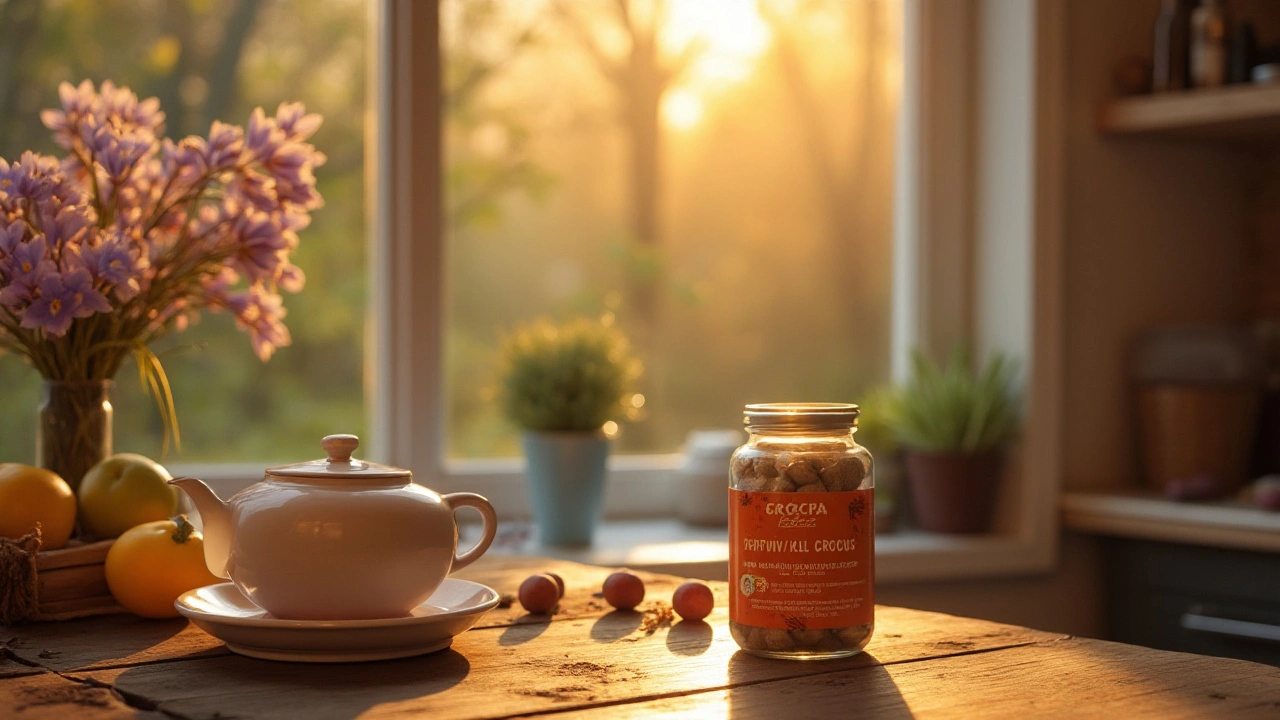One small bulb of autumn crocus holds a powerful drug — and a dangerous poison. The plant Colchicum autumnale contains colchicine, a medicine used for gout and some inflammatory conditions. The same compound that relieves pain in controlled doses can cause serious harm if used incorrectly.
If you see "autumn crocus" on a supplement label or hear about home remedies, pause. Colchicine is prescription-only in most places for a reason: dosing is precise, interactions are common, and overdose can be life‑threatening.
Colchicine lowers inflammation by blocking certain cell processes involved in gout attacks. Doctors prescribe it for: short-term gout flare relief, prevention of recurrent attacks, and some rare inflammatory conditions like familial Mediterranean fever. It’s also used off-label in specific heart inflammation cases, but only under medical supervision.
Typical treatment plans vary by condition and patient health. That makes self-medicating with plant extracts or guessing doses especially risky.
Expect stomach upset — nausea, vomiting, diarrhea — as the most common side effects. Those can be signs of overdose, especially if they’re severe. Colchicine can also cause low white blood cell counts, muscle weakness, and organ problems when levels get too high.
Watch out for drug interactions. Colchicine levels rise when taken with some antibiotics and antifungals or with medicines that affect liver transport proteins. Names you may have heard include clarithromycin, ketoconazole, certain HIV drugs, and some heart medications. If you take other drugs, tell your prescriber before using colchicine.
Special groups need care: people with kidney or liver problems, older adults, pregnant or breastfeeding people, and children. Dosing often changes or the drug is avoided entirely in these cases.
What to do in an emergency: severe vomiting, profuse diarrhea, fainting, fast heartbeat, or muscle weakness after taking colchicine are red flags. Get emergency care right away — toxicity can progress quickly.
Practical tips you can use now:
If you want alternatives for gout or inflammation, ask your clinician about NSAIDs, corticosteroids, lifestyle changes, and long-term prevention strategies. Colchicine can be very helpful, but it belongs in a treatment plan managed by a health professional.
Want more guides on drug safety, online pharmacy tips, or alternatives to common meds? Our site has practical articles that walk you through safe choices and how to avoid risky products related to plants and prescription drugs.

Autumn Crocus dietary supplements offer a range of health benefits that are just being discovered. From supporting joint health to boosting the immune system, these supplements are gaining popularity. Dive into the world of Autumn Crocus to explore its surprising advantages and learn how to incorporate it into your daily routine for a healthier life.
